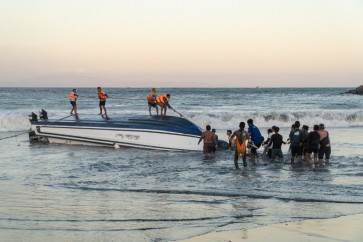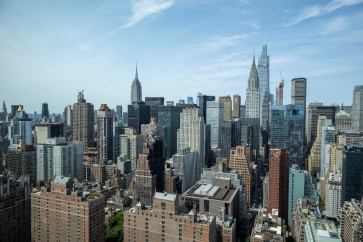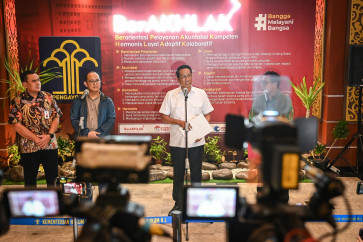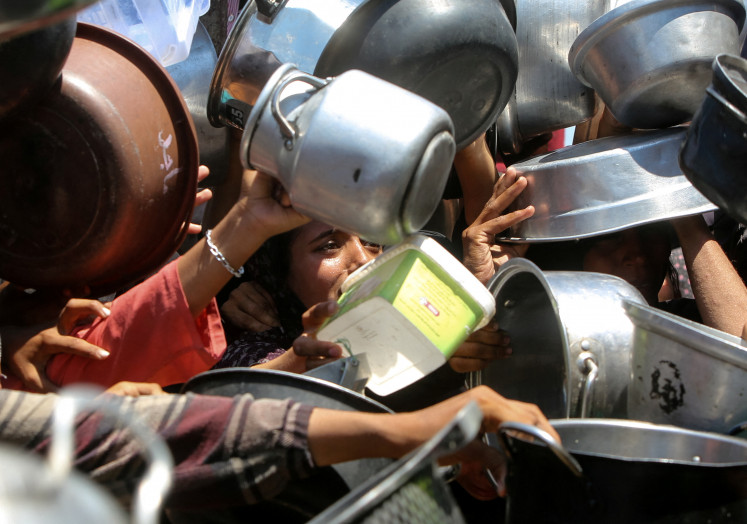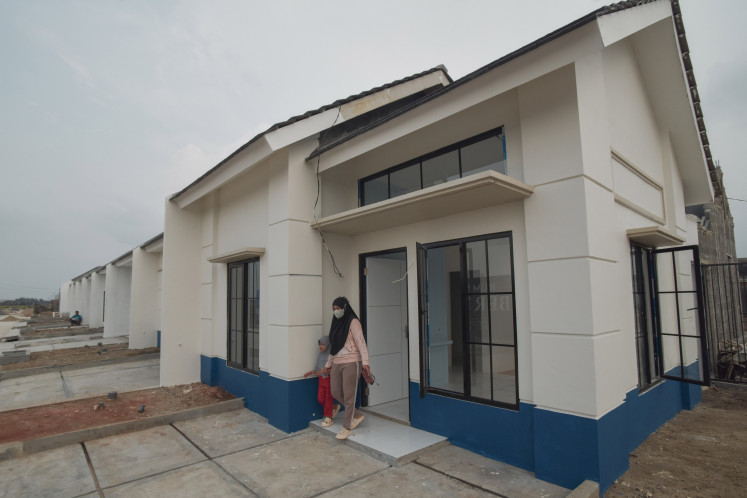Popular Reads
Top Results
Can't find what you're looking for?
View all search resultsPopular Reads
Top Results
Can't find what you're looking for?
View all search resultsLetter: The legacy of the 9/11 attacks
Concerning the issue of Indonesia’s rise to prominence after the 9/11 attacks, it is worth noting that recent events such as rebellions in several Arab countries and the killing of Osama bin Laden have ended a decade in which US politicians have viewed Indonesia mainly as a bridge between the West and the Muslim World
Change text size
Gift Premium Articles
to Anyone
C
oncerning the issue of Indonesia’s rise to prominence after the 9/11 attacks, it is worth noting that recent events such as rebellions in several Arab countries and the killing of Osama bin Laden have ended a decade in which US politicians have viewed Indonesia mainly as a bridge between the West and the Muslim World.
That paradigm dominated the Bush era, as American leaders felt that their country was under siege from hostile Muslims. Like cowboys facing an attack from the Indians, they would have to go out of the camp to launch punitive raids against recalcitrant Muslims, while remaining on good terms with “trustworthy” Muslims, such as Indonesians, susceptible to the lure of American values.
It was thus essential to American interests that Indonesia remain as a country with one foot in the “democratic camp” and one foot in the “Islamic camp”, so it could influence other Muslim-majority countries in America’s favor.
But the Obama administration, with its more knowledge-based approach to international affairs (based partly on the President’s own upbringing), is less attached to Bush’s circle the wagons rhetoric and takes a more realistic view of Indonesia’s potential.
In addition, the wave of uprisings in North Africa and West Asia has shown that Indonesia has very little real ability to affect the course of events in Arab countries.
The peoples of North Africa and West Asia will inevitably rebel against their oppressive rulers in accordance with their countries’ own internal dynamics, without needing any inspiration from Indonesia.
Indeed it is apparent that while Indonesia has a minimal capacity to influence Arab countries, it can quite easily absorb negative influences from Arab countries, notably Saudi Arabia.
It therefore seems that it is in the best interests of Western governments to stop promoting the Islamization of Indonesia and instead to counter some of the fundamentalist trends inspired by Saudi Arabia, such as the increasingly violent persecution of minorities sanctioned by the Indonesian government.
The killing of Osama bin Laden is another significant event. Without Bin Laden as a figurehead foe, the American obsession with terrorism will be attenuated, causing Americans to redirect their attention to China as an emerging economic and political rival, more in the mould of the old Soviet Union than were the terrorist gangs that served as America’s archenemy for the last few years.
The outcome of this is that American media and politicians will revert to the role of “champions of human rights” with which many of them grew up during the Cold War era and with which they will likely feel more comfortable.
A greater respect for freedom, at least domestically, is one field in which Americans can reasonably hope to outperform China. In addition, the current emphasis on “soft power”, in reaction to the reconfirmation of the limitations of purely military power by the War on Terror, will make Western leaders more aware of the need to emphasize human rights principles to enhance their appeal, even if only to their own voters.
In this context, Indonesians need to recognize that the benefits to be gained by playing the “Muslim democracy” card will rapidly diminish.
While the government may hope to reposition Indonesia as a “middle power” democracy, this would also bring a brighter spotlight on its genuine democratic credentials, increasing pressure to reduce religious discrimination, and to treat human rights abuses as a major, rather than a minor, problem.
It remains to be seen whether President Yudhoyono’s administration considers creating a genuine functioning democracy to be part of its agenda.
John Hargreaves
Jakarta


